Vocabulary development Extra Challenge Worksheets for Ages 3-7
7 filtered results
-
From - To
Elevate your child's vocabulary with our Vocabulary Development Extra Challenge Worksheets, designed specifically for ages 3-7. These engaging and interactive worksheets help young learners enhance their language skills, encouraging them to explore new words through fun activities. From matching games to word searches, each worksheet is crafted to stimulate curiosity and promote reading comprehension. Perfect for educators and parents alike, these extra challenges are ideal for enhancing classroom learning or enriching home study. Discover a treasure trove of vocabulary-building resources that inspire kids to express themselves confidently. Get ready to unlock a world of words today!
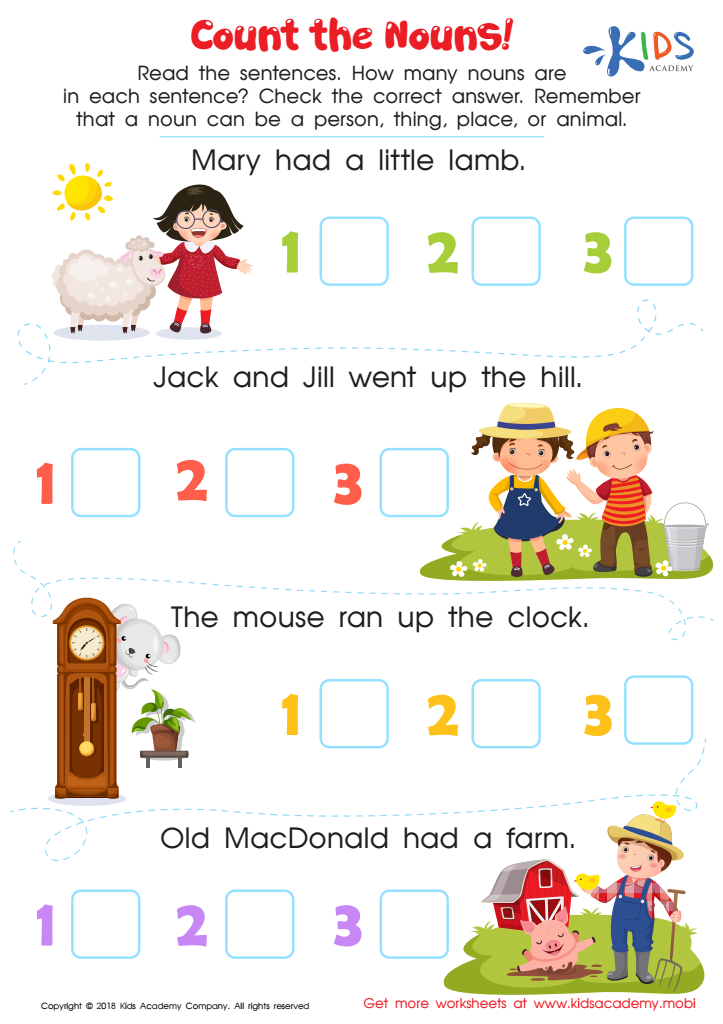

Count the Nouns Worksheet
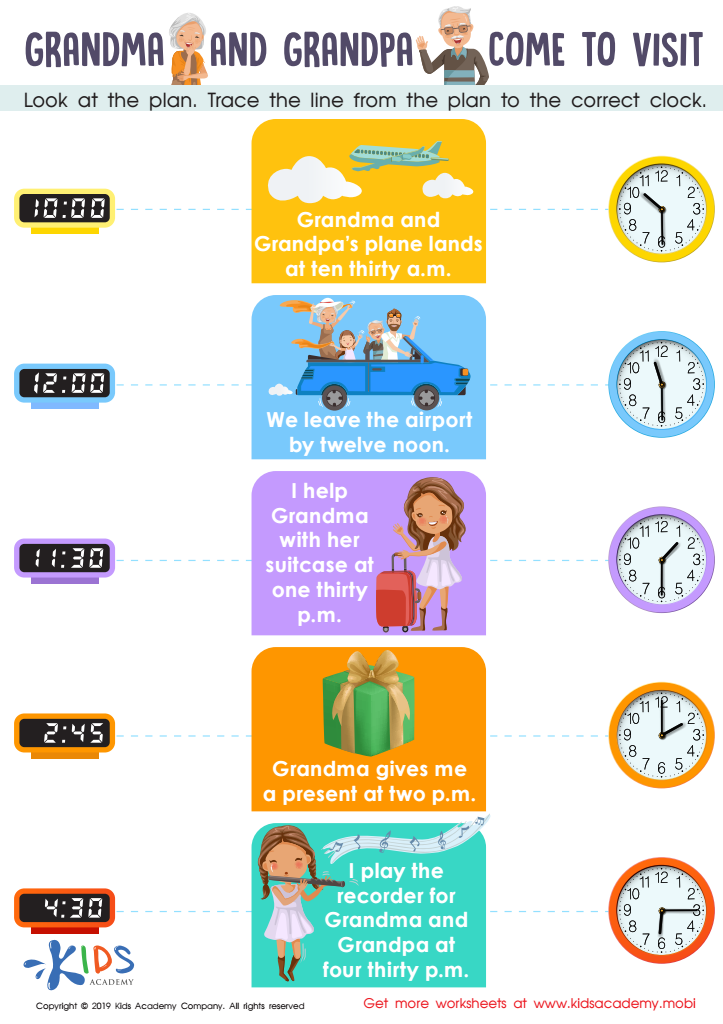

Grandpa and Grandma Come to Visit Worksheet
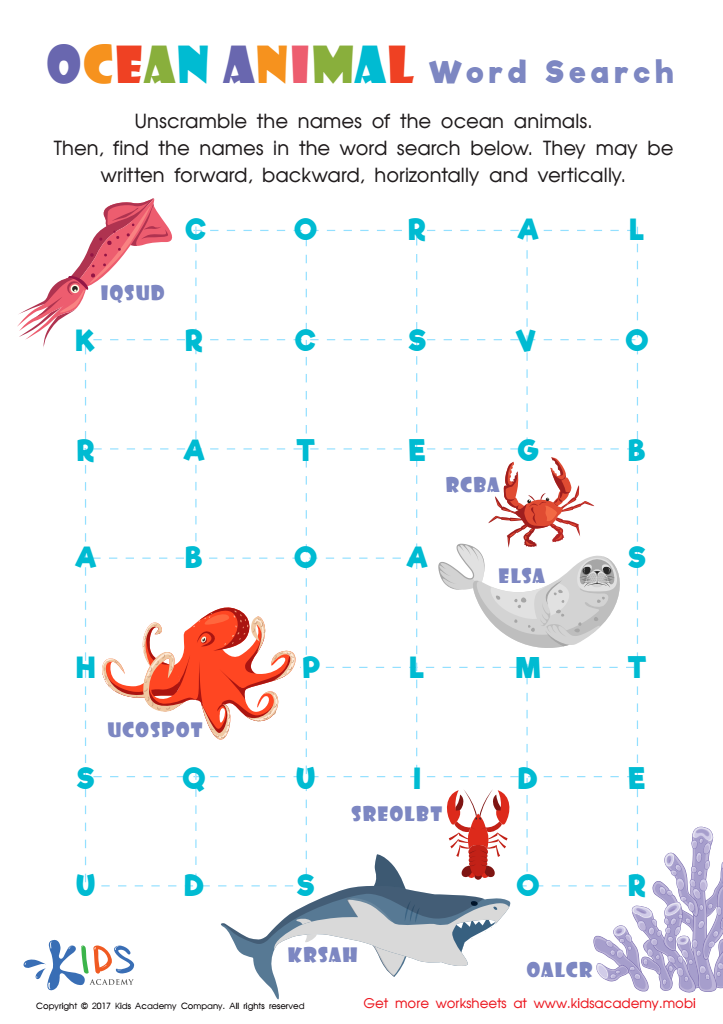

Ocean Animals Word Search Printable
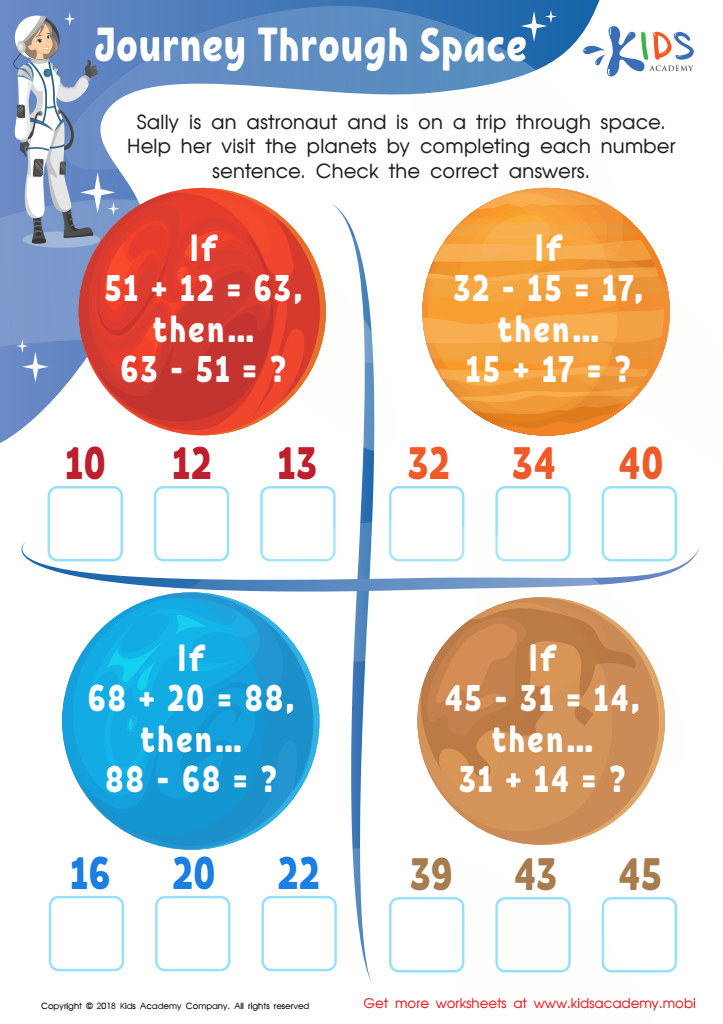

Journey Through Space Worksheet
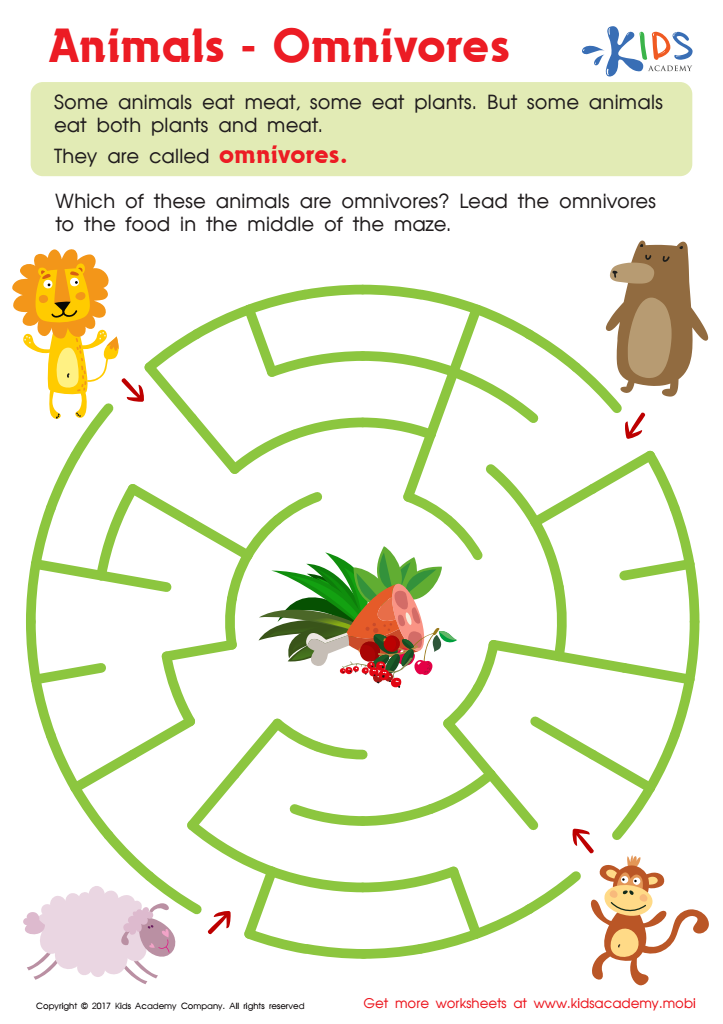

Omnivores Animals Worksheet
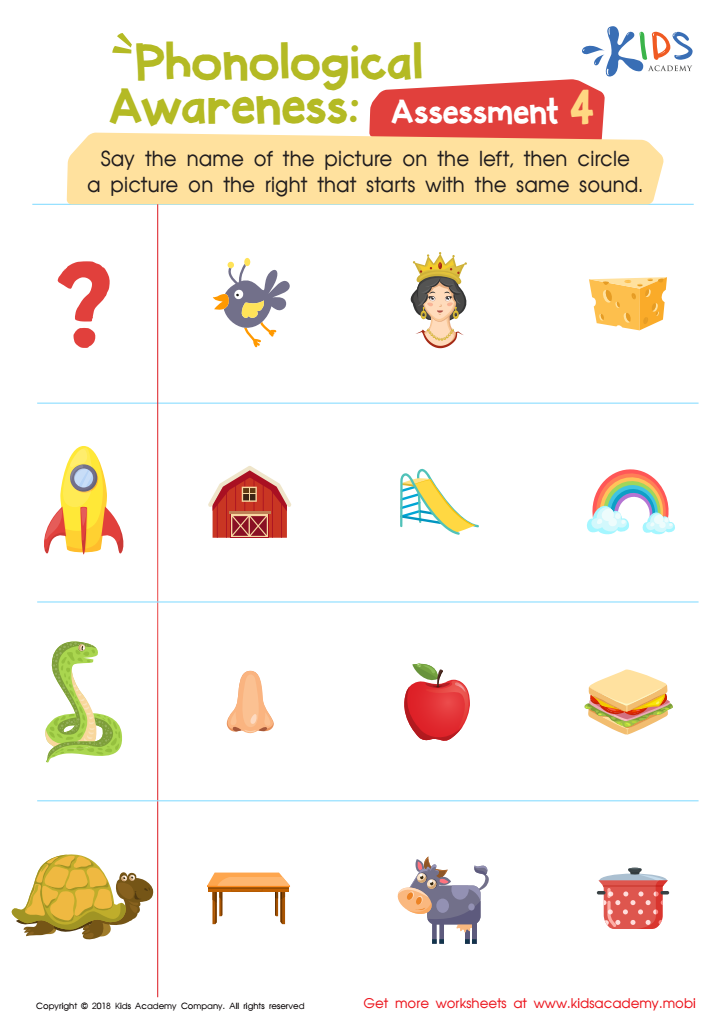

Phonological Awareness: Assessment 4 Worksheet
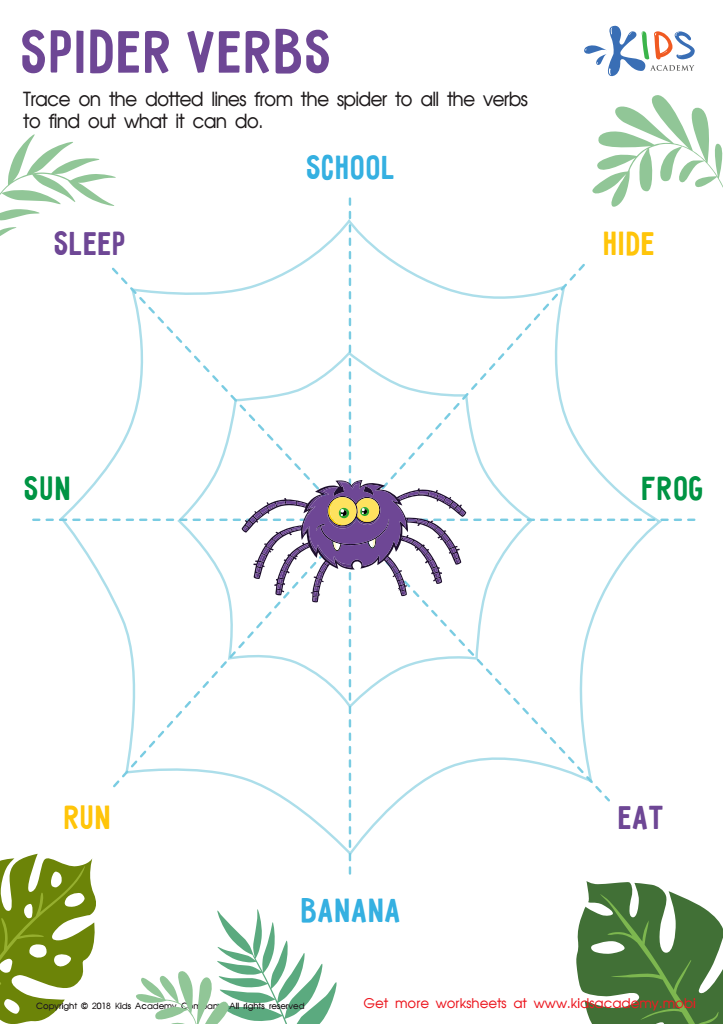

Spider Verbs Worksheet
Vocabulary development is crucial for children ages 3-7 as it lays the foundation for reading, writing, and effective communication. During these formative years, children are rapidly acquiring language skills, and a strong vocabulary is essential for their cognitive development and academic success. When parents and teachers foster vocabulary growth, children become more confident speakers and listeners, enabling them to express their thoughts and feelings clearly.
Furthermore, a rich vocabulary enhances comprehension skills, allowing children to understand and engage with the stories and information presented to them. It also helps them develop critical thinking skills, as they learn to make connections between new words and concepts. Interactive activities like storytelling, singing songs, and engaging in discussions are excellent ways to introduce new vocabulary in a fun and relatable manner.
By prioritizing vocabulary development, parents and teachers are investing in a child's future. Strong vocabulary skills can correlate with better performance in school and increased opportunities later in life. In a world that increasingly values communication and language proficiency, nurturing vocabulary in early years is not just beneficial—it's essential. Ultimately, creating a vocabulary-rich environment empowers children, helping them thrive academically and socially.
 Assign to My Students
Assign to My Students



















